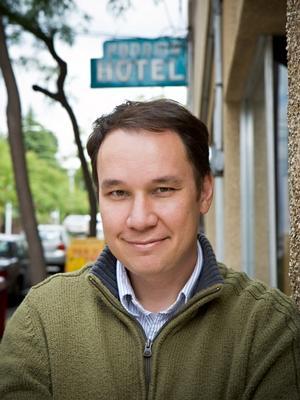David Guterson and his bestselling Snow Falling on Cedars arent the last word on our illegal World War II internment of Japanese-Americans. There are different sides to the story, even Chinese-American sides. Debut novelist Jamie Fordhis great-grandfather changed the family surname from Chunggrew up here in the latter community, though he now resides in Montana. His debut novel, Hotel at the Corner of Bitter and Sweet (Ballantine, $24), sprang from the I am Chinese button his father wore as a Seattle boy during the 40sto avoid being confused with despised Japanese-Americans. Hotel, which includes real history from that recently renovated building, is part wartime forbidden-puppy-love story, part reconsideration of that era four decades later. At my grandparents level, there was this abstract kinship with the Japanese-Americans and the Filipinos, because they were all second-class citizens, says Ford by phone of the war years. But then they didnt mix. It was a separate society. There was probably a little bit of enmity. Japan had invaded China. If a Chinese woman would marry a Japanese guy, her parents wouldnt go to the wedding. Today, the inter-ethnic tensions are largely gone, Ford believes, though Chinatownor just call it the IDwas diminished in the 60s when I-5 tore up that area. Ford regularly visits the ID when seeing his family here, and he hopesespecially after the notorious 1983 Wah Mee Massacrethat the neighborhood is coming back. Chinatown is like this scar tissue on the Emerald City. For whatever reason, no ones ever wanted to revitalize Chinatown. BRIAN MILLER
Wed., May 13, 7 p.m., 2009




